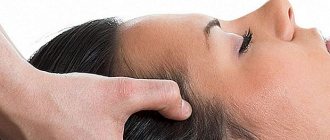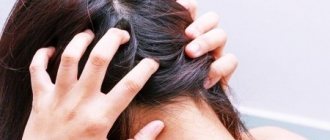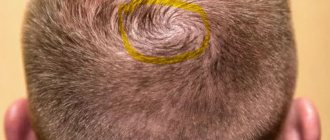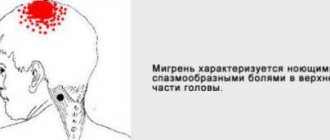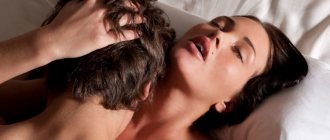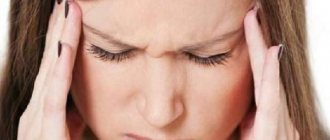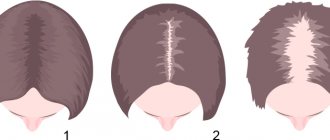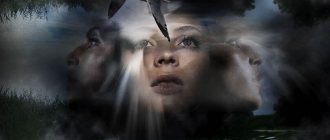Depending on the cause, the headache can be localized in a specific area or cover the entire head. The nature of the sensations may also vary, as well as their frequency. One of the most debilitating is considered to be a headache in the crown of the head. The crown is a part of the surface of the head located between the back of the head and the forehead, i.e. on top.
It is worth noting that no one is immune from headaches in the crown area. It can even appear in a child. If the crown of your head hurts, the nature of the pain may be different. There may be a feeling of squeezing, bursting from the inside, sometimes even tingling. Often, pain symptoms can be pulsating in nature or radiate to the ears or optic nerve.
At CELT you can get advice from a specialist algologist.
- Initial consultation – 4,000
- Initial consultation with the head of the Pain Clinic - 4,500
Make an appointment
The reasons why the parietal part of the head hurts can be very different. The most common is considered to be increased intracranial pressure, but it is not the only one.
Causes of pain in the parietal part of the head
As already mentioned, the causes of headaches in the crown area can be different, but some of them are more common and have similar symptoms.
Pain in the crown due to tension
If the crown of the head hurts, the reason may lie in tension, which arises due to prolonged stay in an uncomfortable position, without the necessary movement and insufficient lighting. Occupational pain in the crown of the head occurs due to the fact that the workplace does not meet ergonomic standards.
The pain is dull, pressing, squeezing in nature. They make you feel as if you are wearing a tight helmet on your head.
Pain in the crown due to neuroses
More than 50% of complaints of pain in the parietal region belong to patients with neuroses. They can be either constant or periodic, vary in intensity and are accompanied by:
- panic attacks;
- experiences;
- emotional instability.
If pain symptoms are accompanied by dizziness and numbness of the arms and legs, you should urgently seek medical help.
Pain in the crown after injury
Even minor traumatic brain injuries can cause pain in the crown of the head. It may be due to the following:
- disturbance of the movement of cerebrospinal fluid;
- pinched nerve roots;
- damage to the membranes of the brain.
The “companions” of pain symptoms in this case are:
- decreased performance;
- memory impairment;
- difficulty concentrating
Pain in the crown due to vascular diseases
Diseases such as hyper- and hypotension, vegetative-vascular dystonia are also factors leading to the appearance of pain in the crown. Due to increased or decreased vascular tone, they are not able to provide the necessary blood pressure, which leads to spasms or compression of nerve cells.
More about vegetative-vascular dystonia
Why do hair roots hurt?
I think many people, both men and women, have experienced this. Outwardly, everything seems to look great: good hair and you take care of it, as they say, according to all the rules, but sometimes scalp pain makes itself felt. Such exacerbations usually occur during transition periods - in spring and autumn, as well as after stress.
Why do hair roots hurt?
Are you familiar with this situation? From time to time you suffer from headaches, but this is not an ordinary pain. It feels like your scalp is hurting, as if at the roots of your hair.
I think many people, both men and women, have experienced this. Outwardly, everything seems to look great: good hair and you take care of it, as they say, according to all the rules, but sometimes scalp pain makes itself felt. Such exacerbations usually occur during transition periods - in spring and autumn, as well as after stress.
Why does the scalp hurt?
The most common cause is simple hypothermia of the head. Going outside without a hat, especially if your hair is wet, never goes unnoticed. Cooling the skin causes vasospasm. If the vessels under the skin are damaged, their narrowing causes pain, sometimes quite long and sharp.
In this case, a comprehensive examination by a trichologist and neurologist is necessary. You may be prescribed a course of treatment: injections, massage, vitamins. It is better not to let the pain continue and not endure it, but to consult a doctor immediately. It is necessary to cure the blood vessels from inflammation, and in the future, always go outside in cool weather with your head covered, even if you only ran out “for a minute.”
A common cause of scalp pain is simple stress. The body of each of us reacts differently to events in our lives. If you notice that your scalp begins to hurt after being very nervous at work, most likely the cause of the pain is stress. In this case, taking natural sedatives such as magnesium, motherwort, and B vitamins will help solve your problem.
Why does my scalp still hurt? Perhaps, when examined by a doctor, you were diagnosed with vegetative-vascular dystonia. In this case, the vessels of the whole body are very sensitive to any changes in both the external and internal environment of the body. Any stress, changes in magnetic background, sudden changes in weather conditions can trigger scalp pain.
Often pain and increased sensitivity of the scalp are the first harbinger of the onset of hair loss. In this case, especially if the hair loss has already begun, you should definitely go to the doctor. In addition to medical recommendations, it is worth supplementing treatment with masks and lotions for the scalp at home.
Another cause of soreness in the scalp is fungus. This does not happen very often, but the disease does occur. It is possible to pick up a fungus when using someone else's combs or hats. Therefore, observe the rules of personal hygiene and do not use other people's things.
Sometimes psoriasis can be the cause of pain. Psoriasis affects the entire skin, either entirely or in patches. And it may well settle under the hair. Moreover, this does not become noticeable immediately due to the hairline. But then the hair begins to thin and bald spots appear.
Pay attention to heredity. Sometimes it happens that weak hair follicles and thin sensitive skin are determined by hereditary characteristics, but this, of course, does not mean that treatment is useless. It is necessary to rub in medicinal products to strengthen the skin and hair. The scalp needs no less care than the skin of the face.
Allergic reactions
This is a very common cause of scalp pain. Some allergens, when affecting the body, manifest their effects in this particular place. However, more often the problem is an incorrectly selected shampoo (or another hair product; by the way, during and after coloring and perm you may feel a strong burning pain - this means that the product is not suitable for you, do not forget about the preliminary sensitivity test!).
Review your diet and consult a doctor to identify the source of this reaction, as well as take a set of measures to restore normal balance.
Women with long hair sometimes have scalp pain for a very simple reason - they pull their hair too tightly in a ponytail or bun. If long hair bothers you and you can’t constantly let it down, then choose the softest hair clips and elastic bands, and be sure to leave your hair down at night to give it a rest. Very heavy and thick hair, especially if it is very long, can also cause pain.
It is also possible that the reason is that you do the same hairstyle, styling, and when you comb your hair differently, the hair follicles begin to hurt. If your scalp hurts for this very reason, then the only way out is to massage the scalp.
It can be carried out either by a specialist or independently if you have certain skills. The massage can be simple manual or using special massagers - it doesn’t matter. The main thing is to regularly find time for this pleasant procedure. By the way, a good idea is to combine a massage with shampooing.
The water should be very warm to relieve spasm of the blood vessels in the head, and the shampoo should be mild so as not to irritate the sensitive scalp. Massage significantly improves blood circulation, so the pain will immediately recede into the background, and after several procedures it will disappear completely.
Whatever the reason for the soreness of the scalp, in general your skin can confidently be called sensitive, which means it requires more careful and gentle care. The first and most important recommendation would be to visit a doctor to identify the causes of your problem and select adequate treatment.
In general, it would be a good idea to regularly pamper your sensitive scalp with various masks, especially those based on oils, rubbing in special medicinal products, regular massage, as well as regular and timely cleansing of the scalp.
A balanced diet and the ability to cope with stress will also be helpful.
Health to you!
Diagnostics
You should not postpone a visit to a specialist if, along with severe pain in the crown area, the following clinical manifestations are observed:
- increased pain;
- visual impairment;
- deterioration in general health;
- memory disorder;
- increase in general temperature;
- nausea, vomiting.
You can contact the CELT clinic, and our specialists will help you get rid of not only pain, but also the reasons that caused it.
In order to determine the cause of pain, our specialists carry out:
- magnetic resonance imaging (MRI);
- computed tomography ();
- blood test for infections;
- blood pressure monitoring.
If necessary, an examination by an ophthalmologist or surgeon may be scheduled.
Preventive measures
To prevent the appearance of painful sensations in the scalp, you should take care of its cleanliness and carefully select hair and skin care products . Choose your headwear responsibly – it should not be tight or too loose. In the cold season, you should not allow hypothermia.
To avoid infection with infectious skin diseases of the scalp, you should avoid close contact with people - in public places, transport, etc., avoid using other people's combs or trying on other people's hats. Avoid injuries and scratches to the scalp, and if they appear, treat them with a skin antiseptic solution.
An important point in the prevention of skin diseases is proper nutrition and immune support . The infection affects the skin when the immune system is weakened and cannot fight bacteria and fungi.
Treatment
Analgesics are one of the effective means of combating headaches. However, we should not forget that they do not eliminate the main cause that caused such a reaction, but only eliminate the clinical manifestations, and after some time the pain will remind itself again.
Make an appointment through the application or by calling +7 +7 We work every day:
- Monday—Friday: 8.00—20.00
- Saturday: 8.00–18.00
- Sunday is a day off
The nearest metro and MCC stations to the clinic:
- Highway of Enthusiasts or Perovo
- Partisan
- Enthusiast Highway
Driving directions
Symptoms and signs
The skin on the top of my head hurts
What causes pain on the top of the head?:
- Hypertension or hypertensive crisis.
- Stress, as well as severe nervous tension.
- Physical fatigue.
- Diseases of the cervical spine.
- Anemia.
On the back of the head
- Nervous breakdowns caused by stress.
- Excessive physical or mental stress for a long time.
- Osteochondrosis.
- Head injuries or diseases of the cervical spine.
- Bone degeneration of ligaments – spondylosis.
- Neuralgia of the occipital nerve.
- Increased intracranial pressure, which is characterized by a pressing headache with a feeling of heaviness in the occipital region.
- Cervical migraine.
Only on one side
Causes of scalp pain on one side:
- Migraine.
- Tension pain. This is a very common reason that causes pain to be felt on the right side of the head.
Intracranial bleeding.- Pathologies of the oral cavity.
- Tonsillitis, sinusitis.
- Costen's syndrome.
- Cluster pain in the head.
- Injuries and concussions. If the right side of the head hurts and you feel nausea, dizziness, tinnitus, weakness and vomiting, and your health worsens with any movement, then you may have suffered a cervical or head injury.
Behind the ear
- Occipital neuralgia.
- Mastoiditis.
- Inflammation of the temporomandibular joints.
- Dermatological diseases.
- Vascular diseases.
- Diseases of the nerve endings.
We invite you to watch a video about what types of headaches there are and why they occur:
